A new PETA exposé into the cashmere industry in China and Mongolia—the world’s top cashmere exporters—reveals extreme cruelty to and violent killing of cashmere goats.
The video exposé shows goats screaming in pain and fear as workers tear their hair out. Later, their throats are slit in slaughterhouses and they’re left to die in agony. Goats suffered on every farm in China and Mongolia visited by the eyewitnesses.
Together, China and Mongolia produce 90 percent of the world’s cashmere.
Workers Stepped on Terrified Goats and Twisted Their Limbs
Eyewitnesses saw workers hold down and step on frightened goats, bending their legs into unnatural positions as they tore out their hair using sharp metal combs.
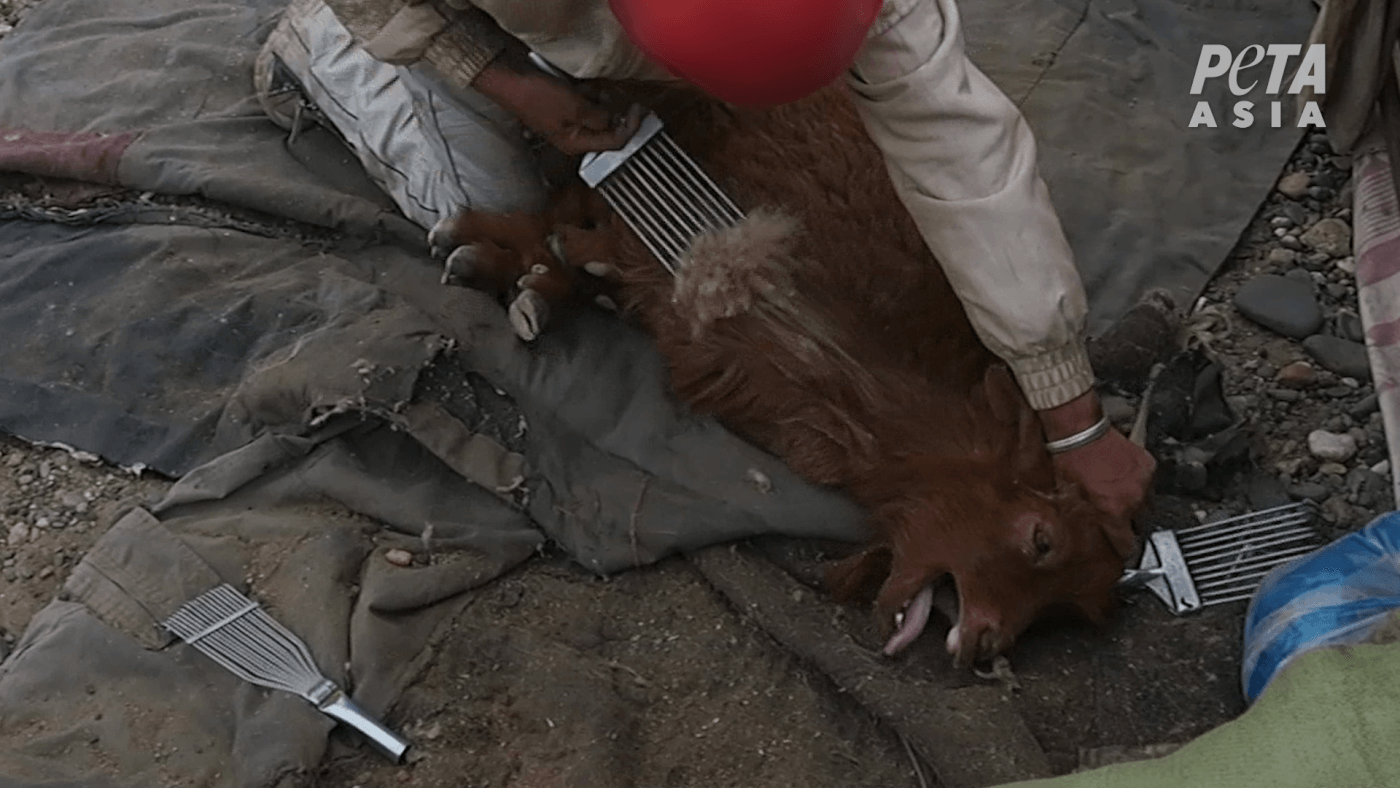
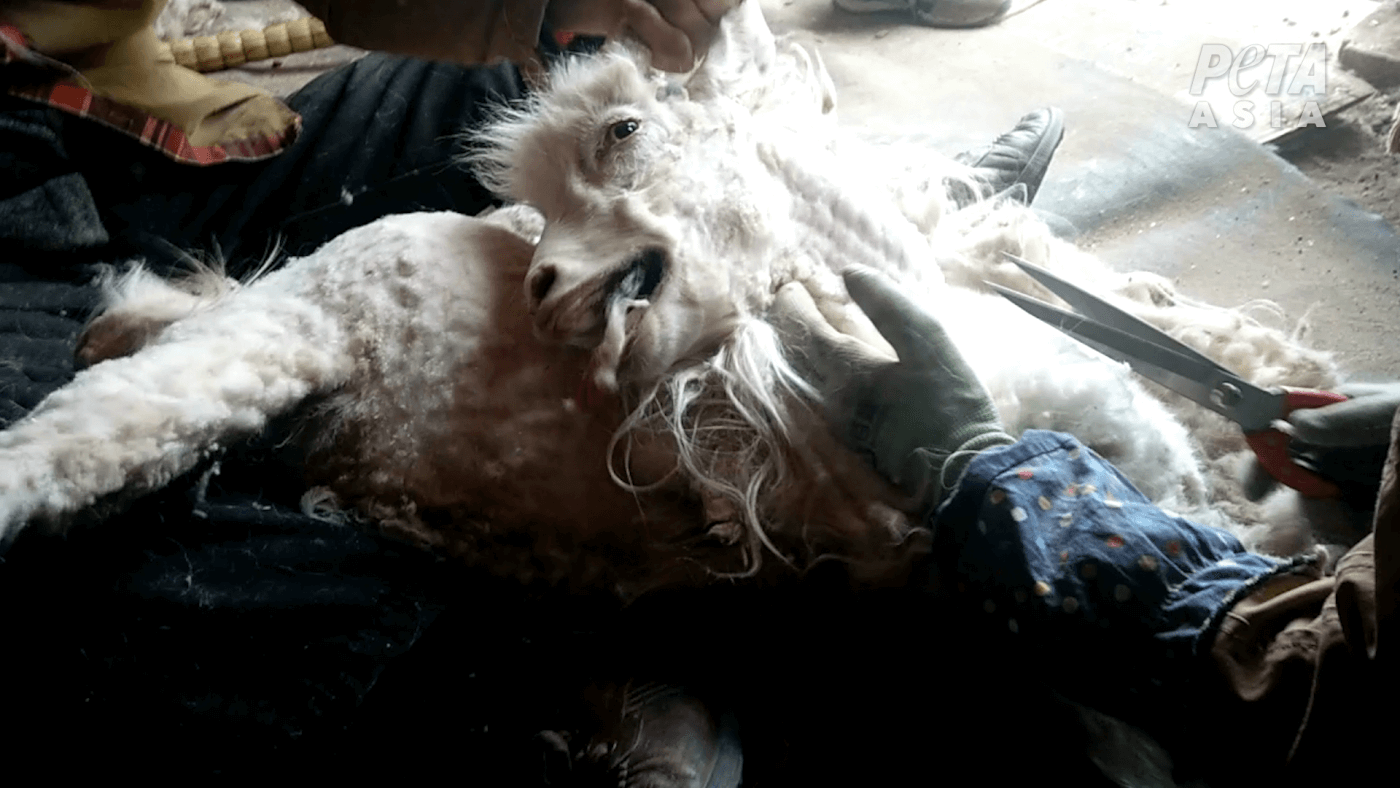
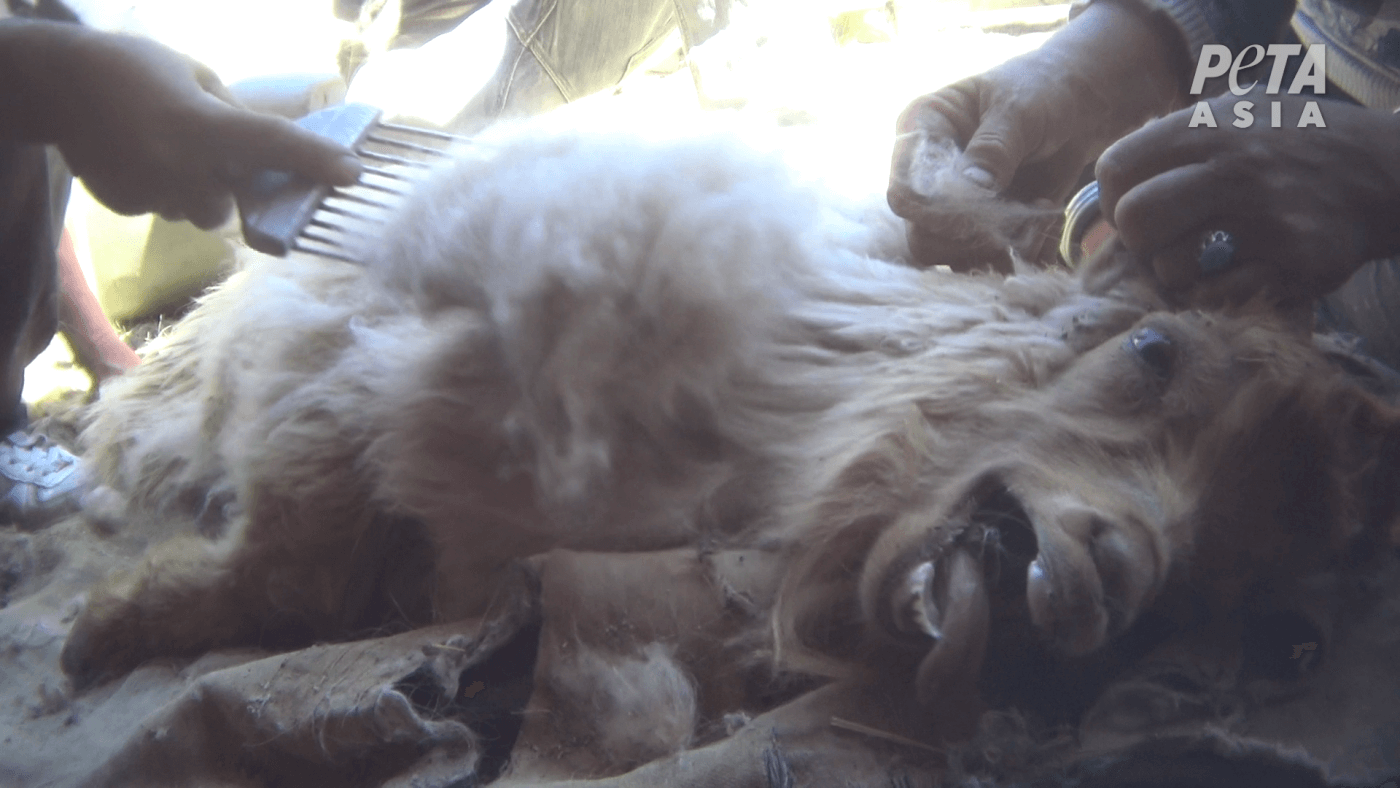
No Veterinary Care Provided
Goats left with bloody cuts from the hair-removal process received no pain relief or veterinary care. One worker simply poured rice wine into an animal’s wound.
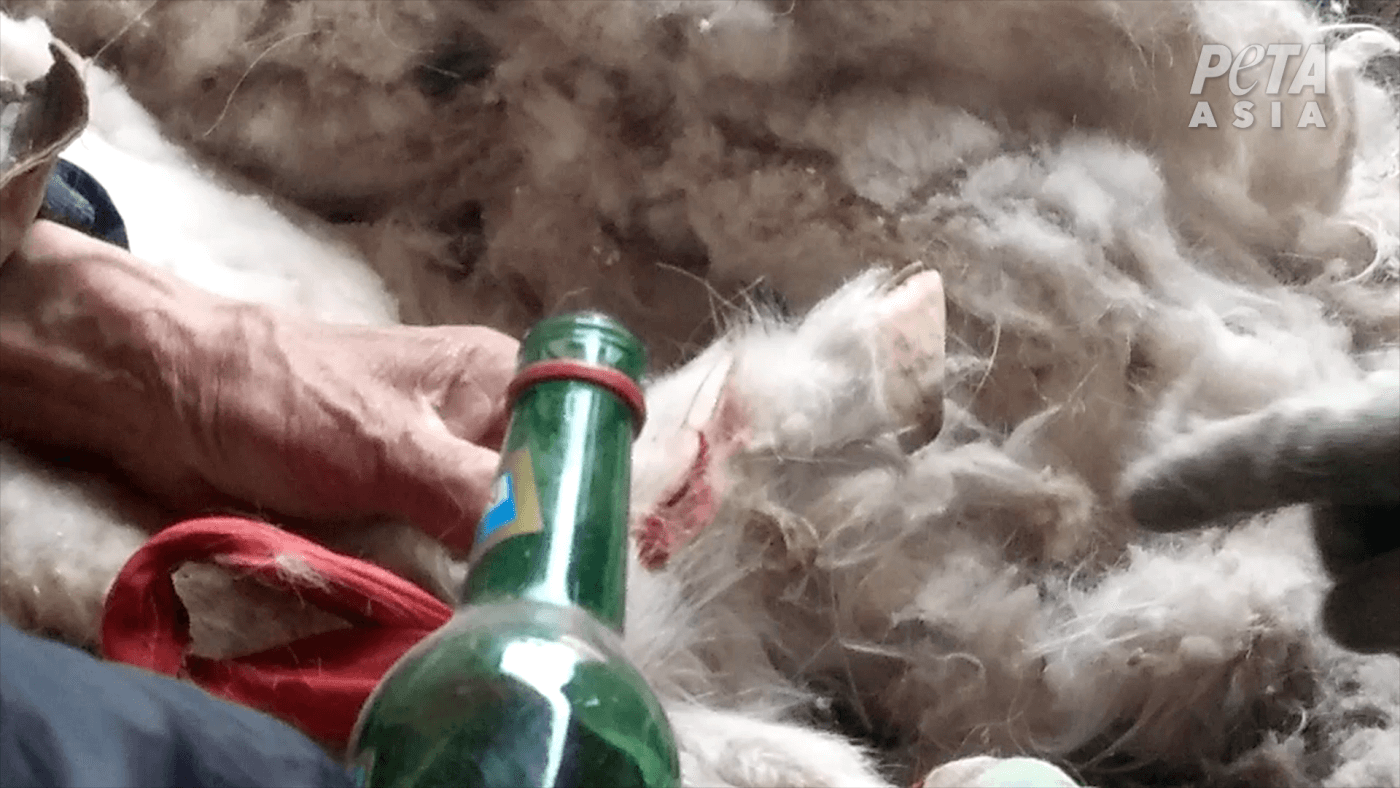
Goats Hit With Hammers and Killed When No Longer Profitable
Cashmere goats deemed no longer profitable endure slow, agonizing deaths. At a slaughterhouse in China, eyewitnesses saw workers hit animals in the head with a hammer in an attempt to stun them. In Mongolia, workers were seen dragging goats by one leg onto the slaughterhouse floor before slitting their throats in full view of other goats. They were left to bleed out on the filthy kill floor, and some were seen still moving a full two minutes later.
Their flesh is then sold as cheap meat.
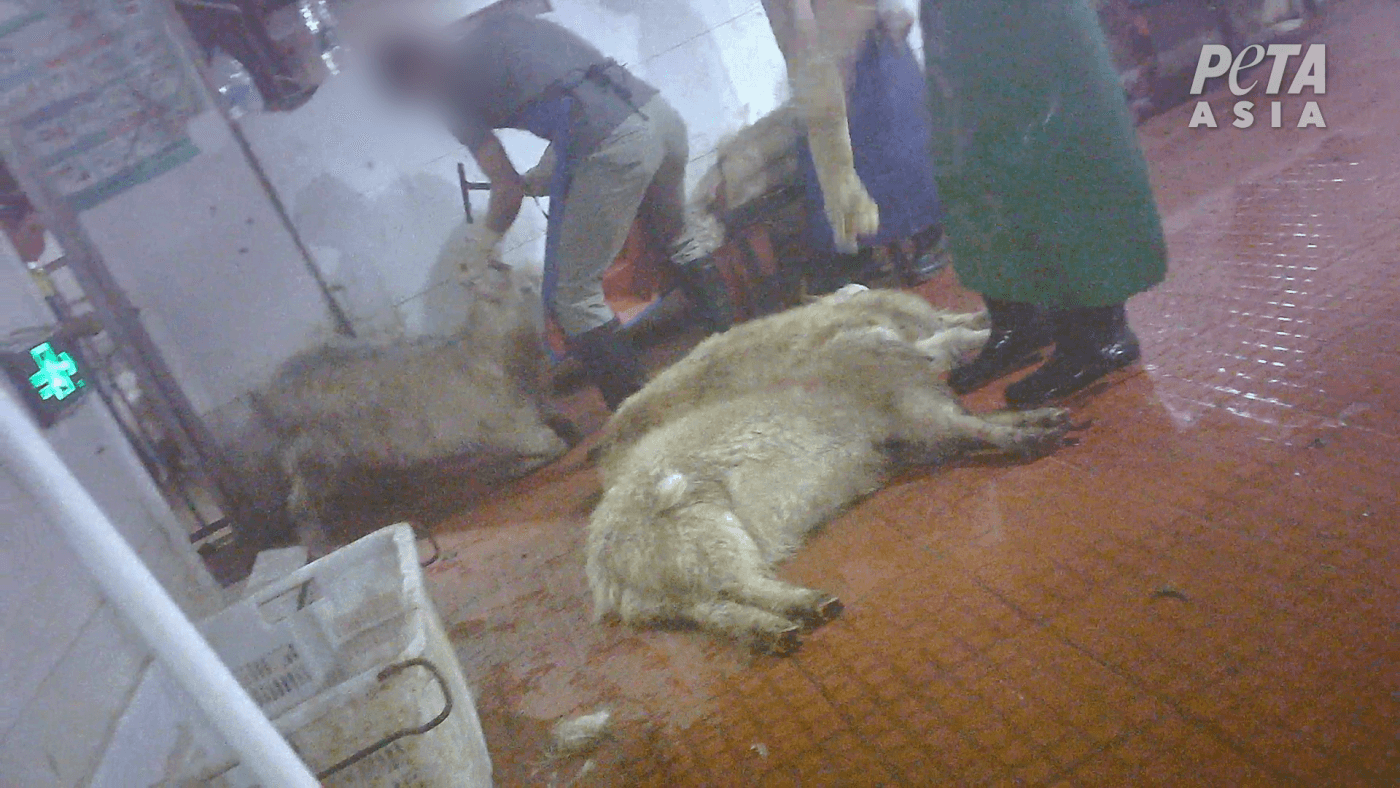
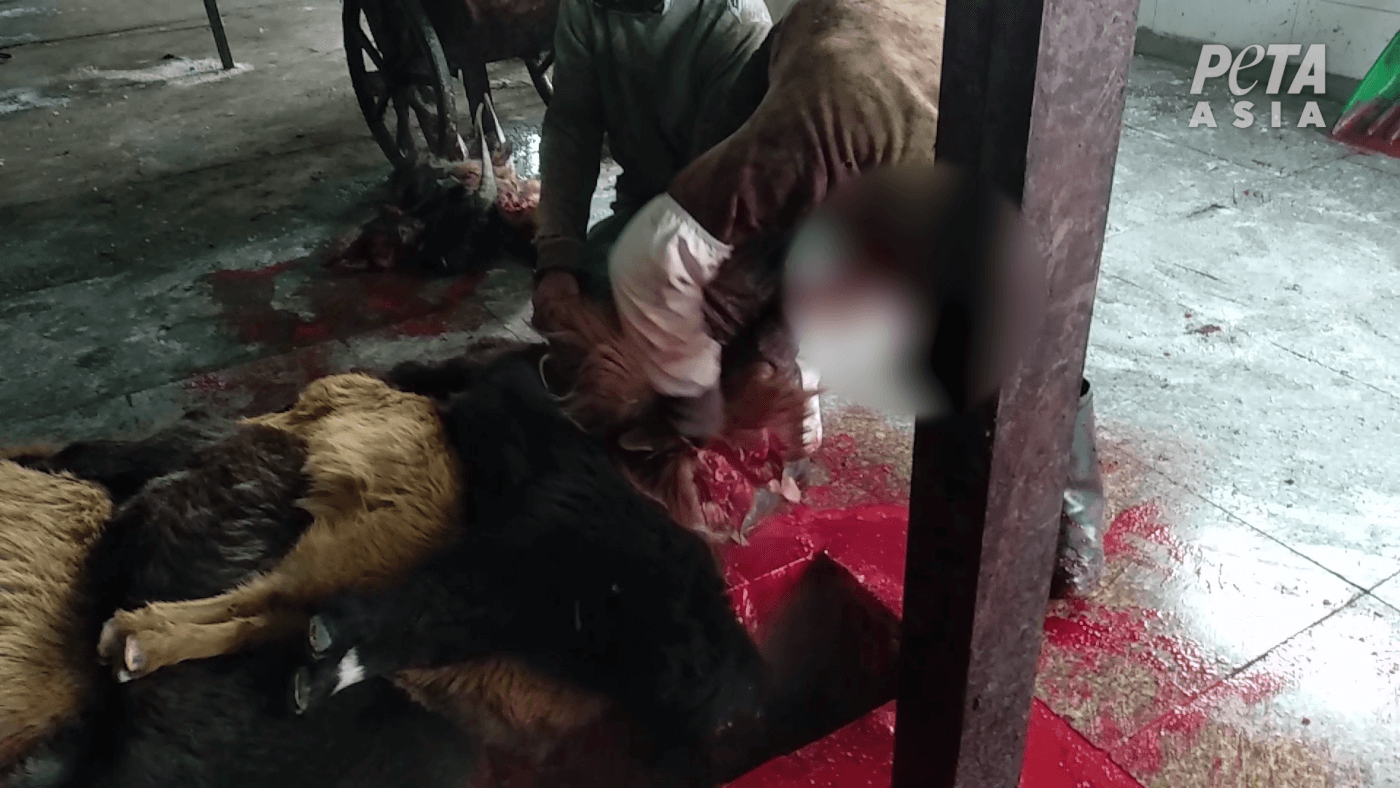
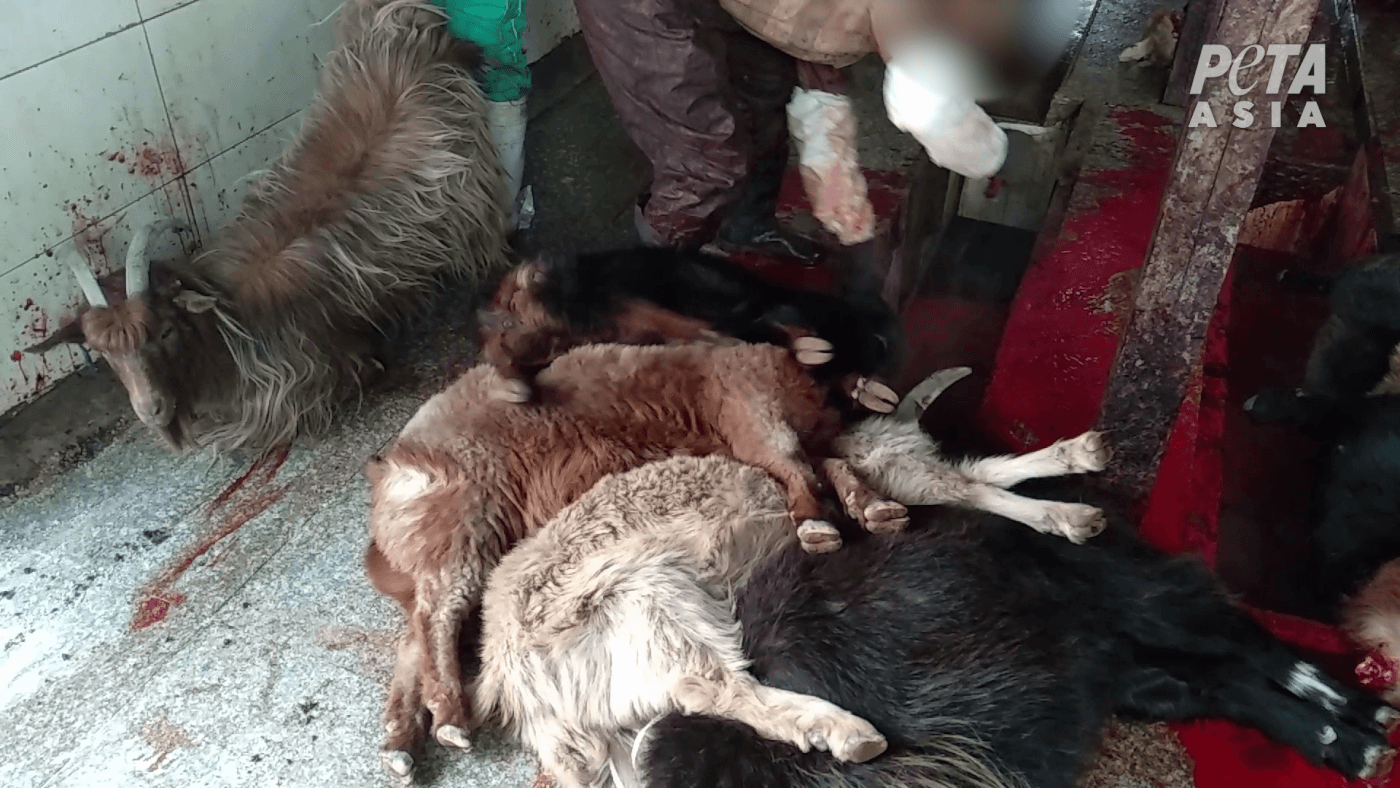
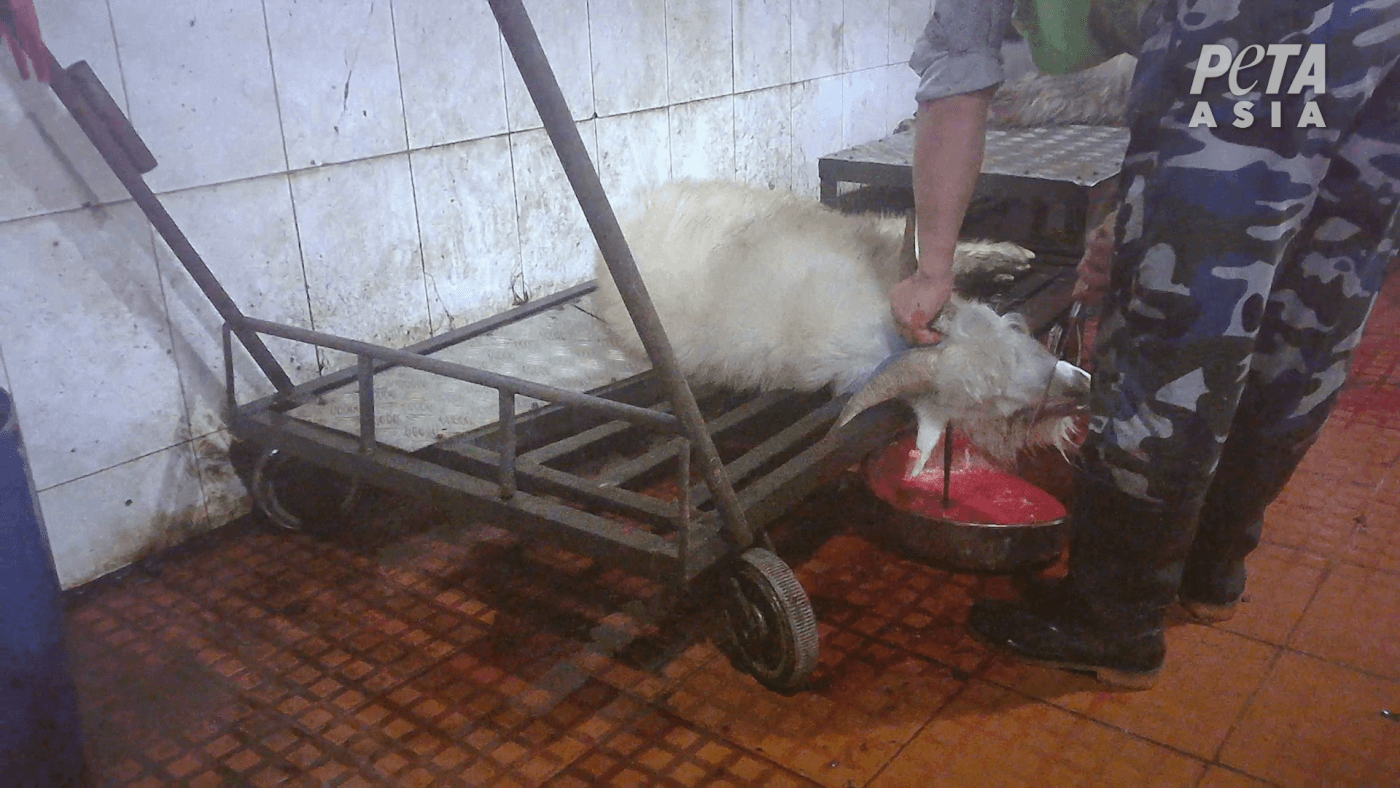
Ninety Percent of All Cashmere Comes From China and Mongolia
Nearly all cashmere is produced in China and Mongolia, so if you buy a cashmere item, it probably came from goats who were abused in one of those countries.
One goat produces, on average, only 8.5 ounces of hair per year. This is so little that in order to produce just one cashmere jacket, the hair of six goats is required.
China has no penalties for abusing animals on cashmere farms, and the situation in Mongolia appears to be much the same. The best way to help these goats is to refuse to support this cruel industry—by never buying anything made of cashmere.
No matter where it comes from or what assurances companies give, cashmere is a product of cruelty to goats, which is rampant in the industry. And when they stop being profitable, the goats are slaughtered.
Devastating to the Environment
Cashmere production is harmful to the environment because it is a significant contributor to soil degradation followed by desertification. Cashmere goats, who must consume 10% of their bodyweight in food each day, eat the roots of grasses, so they can never grow back. In fact, 65% of Mongolia’s grasslands have already been degraded, and 90% of Mongolia is in danger of desertification, which has led to some of the world’s worst dust storms on record and air pollution dense enough to reach North America.
What You Can Do
ASOS previously banned cashmere following discussions with PETA UK and has taken the final step of removing all remaining cashmere stock from its website, leaving goats’ hair where it belongs: on the goats. Please help us urge women’s apparel brand Madewell to ban it, too.
